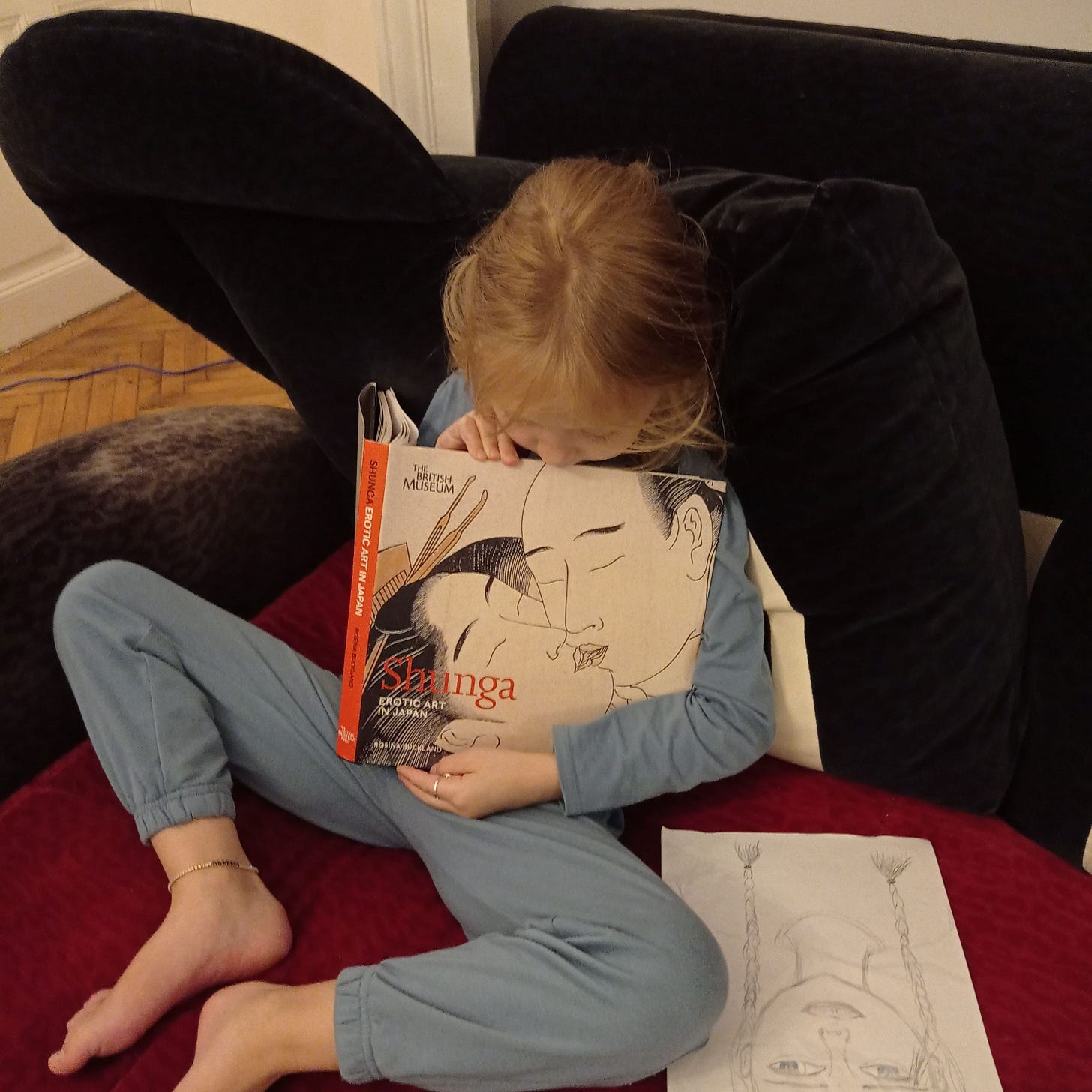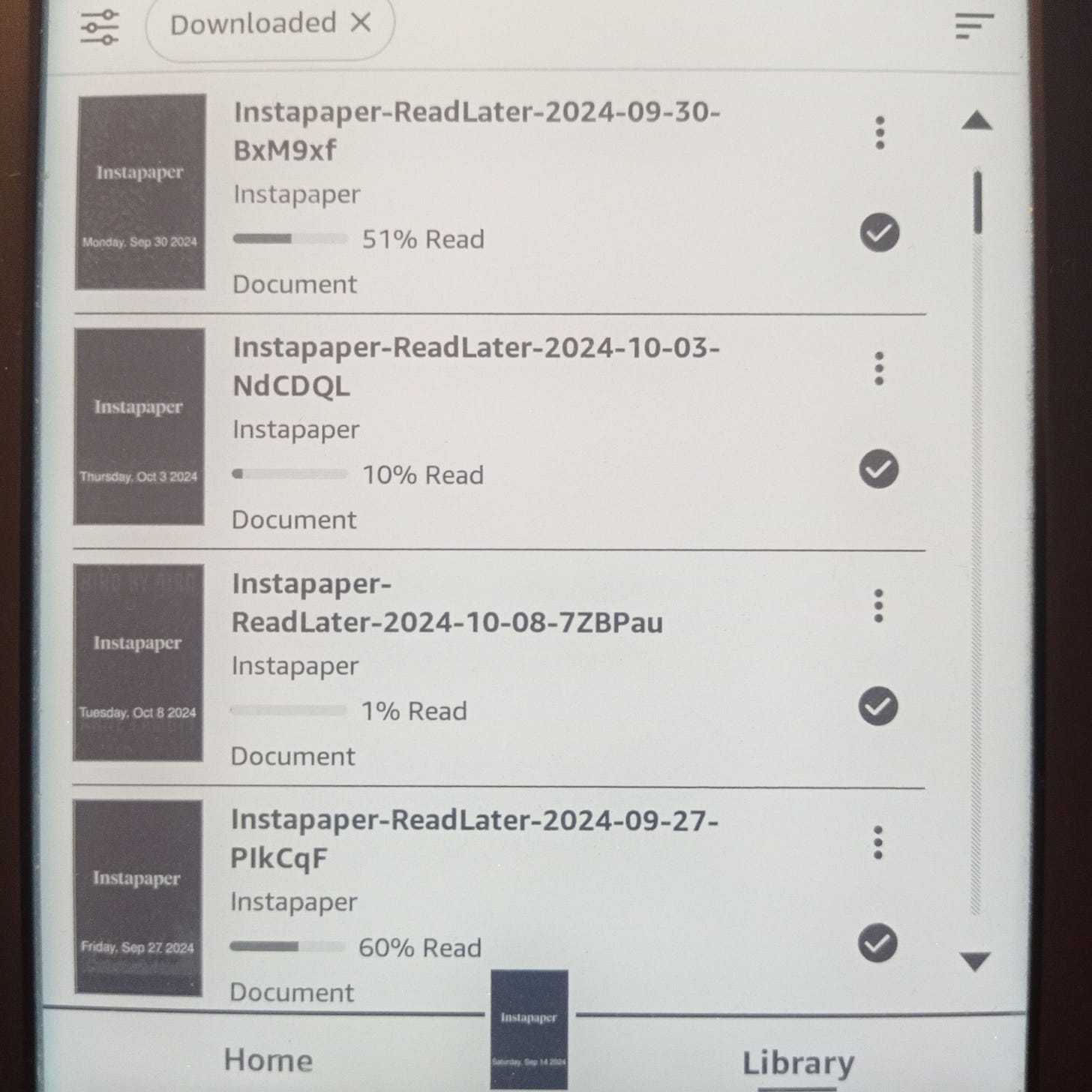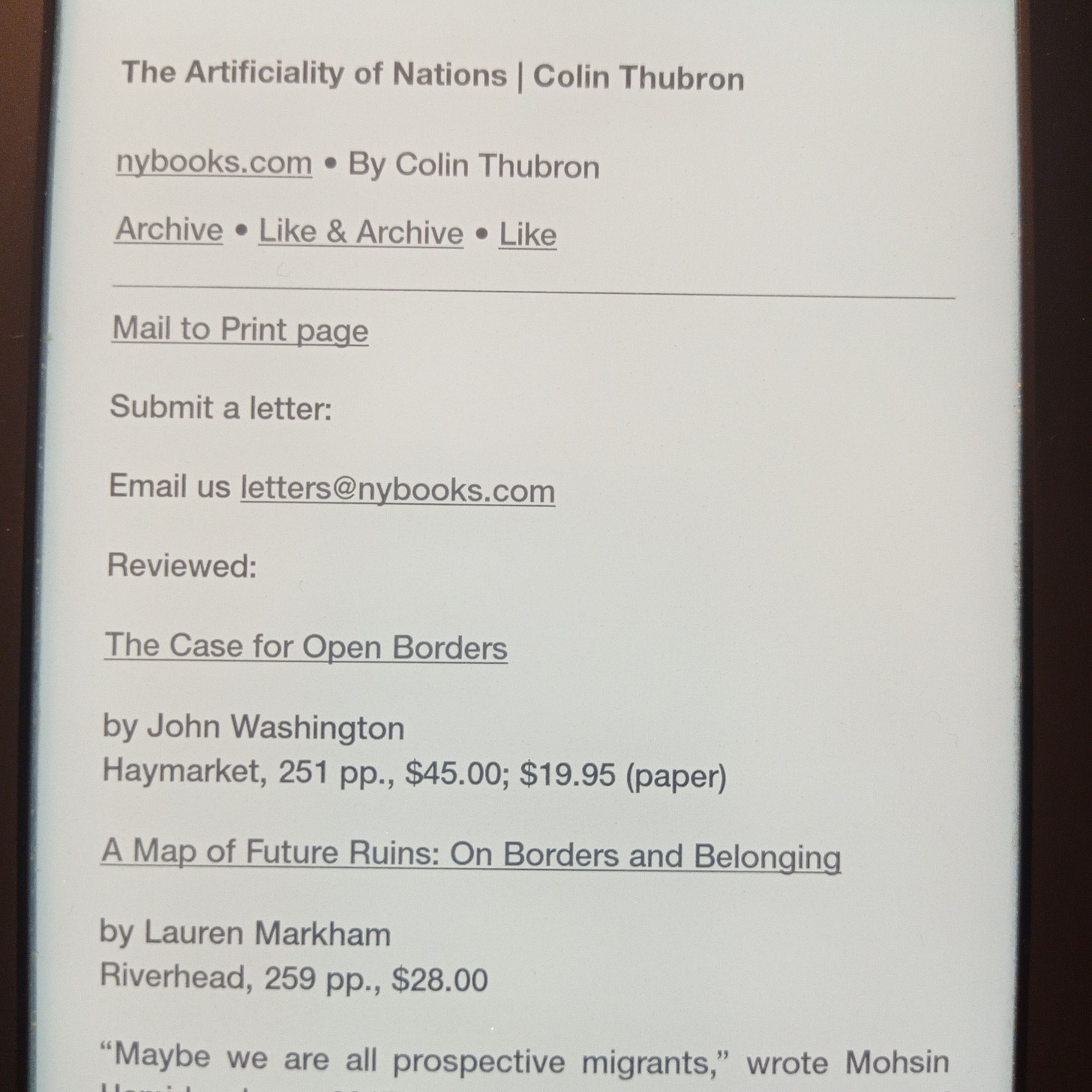Ready to read and listen differently? Spice things up and remember more with my favourite head-spinning tips
And I recommend an excellent Substack newsletter
Note: There is no voiceover for this post - what you see at the top is my daughter interrupting my audio note-taking method with a shameless book plug. It’s less than a minute long - go on, give it a listen!
We have a two-parter
1 A super simple way to remember what you read, with little effort
2 A fun way to read that might blow your mind – thankfully, not literally
3 A recommendation for an excellent newsletter
1 Remember more of what you read and hear, effortlessly
This is also a great tool for language learners to practise speaking or writing on your own without any need for a teacher (especially a useless one like me).
It’s nothing revolutionary, but it’s probably something you’re not doing much. If you read a lot, unless you’re a superhuman, you’re not going to remember it all.
In my last post, I dedicated just shy of 500 words to explaining, in layspeak,1 the decline of traditional media and advertising revenues in the past few years.
Would you like to know where I did my research? (that’s a rhetorical question; of course you would)
It was from the Plain English podcast on the Ringer network, hosted by Atlantic writer Derek Thompson (I highly, highly recommend the podcast).
Although I’ve listened to many episodes of Plain English and it's been a year since I first listened to this one, I remember it so vividly because I paused every few minutes to summarise the content. I explained it out loud, which is also good speaking practice since the only person I actually talk to on a regular basis is my six-year-old daughter, and as sweet as she is, her vocabulary and life experience just doesn’t compare to mine. Though I may be an anti-social misanthrope, I don’t want to completely lose the ability to have civilised conversations.
I then re-listened about a month ago to see how accurately I remembered (you don’t need to do this, I just wanted to double-check for research purposes) and it was pretty much on point. I promise you that if you do this occasionally with something you hear or read, you’re going to remember it, and you never know when it might prove useful.
“Man, what a pain in the ass having to pay for articles online, that’s ridiculous!”
“Well,” you respond. “Not at all, when you think about. Let me tell you…”
As a writer/author/blogger/ Substacker/wastrel this might come in handy if you need help coming up with article ideas. I probably ought to ease off, though – I have countless word documents, a dozen drafts in progress, 80 voice recordings, 100+ notes in my phone and other scrawlings in notebooks lying scattered around my flat and tattooed on my daughter’s arms, and they’re doing my head in. Time to start churning out more posts asap.
Language learners – consider this free fluency speaking or writing practice. The ability to paraphrase or summarise without knowing the exact word you need is, as you should know, a key component of fluency. (and if you ever want to practise this skill in writing, please feel free to send me a paragraph or two and I’ll consider checking it – it depends on how much I like you.)
Some of you are thinking, “Seriously, Daniel? You think we don’t know this?” whereas others are saying, “Cool, Daniel! I’m going to start right away.”
Maybe it’s just a gentle reminder and a nudge in the right direction.
2 My fun, eclectic, randomised way of reading that will either be the coolest idea you’ve ever heard or make your brain explode from the sheer overwhelmingness of it
I usually have 4-5 books on the go at once - 1 piece of fiction, the rest being anything from philosophy to history to pop culture to dialectical materialism (haha) to this book that my daughter was enjoying earlier before bed:
That also includes multiple articles from all sorts of genres and niches. Including, of course, Substack.
I read some articles in my browser, some in the app and a few on Instapaper. It’s so convenient for sending up to 10 articles at a time in one document to my Kindle and an ebook puts less strain on my decrepit old eyes.
This introduces a fun random element to the reading experience. It might sound dizzying, but I love the way that I never know what’s coming next, keeping me on my toes and forcing my brain to switch between different topics. (and at this point, someone will no doubt point out that this kind of thing increases the risk of dementia by 34%)
For example:
This is only one page. In addition to these 4 documents, I have another 6. That’s a total of 100 articles for my reading pleasure.
With each click, there’s no telling what I’ll find next. It could be anything. Because I never know what I’m in the mood for, or how tired my brain is, I might have to jump around until I get to an article I want. It might be a history of the Enlightenment in the LRB, followed by a Substack post on the magic of Britpop, followed by the latest piece from the Economist about Ukraine, followed by this article on Japanese clutter from Aeon, followed by a one-star review of Sally Rooney’s Intermezzo, followed by…you get the idea.
Here's a nice selection of Substack articles I sent via Instapaper:
With all these publications I subscribe to, there’s no way I can read everything. And I don’t (sorry!). I skim some, read others in depth, some I realise aren’t quite my thing. That’s okay. With FOMO and the feeling of overwhelm, there’s no way we’ll get to everything.
This might get confusing, bouncing around between completely different articles, but that’s part of the joy I get from this. It’s worth trying to see if it works for you.
Finally: recommended for all, and especially for my dear language learners.
I can’t recommend enough Faith Liversedge at The Nostalgia Project and this seems the most appropriate post to start with: I have a problem with nostalgia
There are three things that jumped out as it relates to language learners:
1 It’s such a smooth, free flowing, engaging read (as are all of her posts). It has a lovely, melodic pace to it. In one sense, it’s an easy read, but on the other…
2…it’s a gorgeously language-rich text. So in that sense, it might prove to be a healthy and fun challenge. It’s the kind of text that’s well worth reading twice. The first time for the gist and the message, the second time to focus on some of the exquisite vocabulary. (This is how especially overanalytical English teachers like me approach things)
3 It’s a great reading exercise in that it has a lot of cultural references that a non-UK audience might not quite get. And that’s what makes it such a beneficial read – it has a lot of features from the kinds of texts you’d see on an exam, where you have to train yourself not to understand everything, but just enough to take what you can from it.
I stole this word from Amelia Adams at Practical Blasphemy (my first blog from ages ago was titled "The Layman’s Guide to International Relations”. If I started it today, I’d have to rename it as “International Relations in Layspeak.” Or maybe not - it doesn’t have the same ring to it. Layspeak is still a nice word.






Thanks for the mention, Daniel - really appreciate it!
Thank you so much for this very kind mention and wonderful analysis Daniel - I love it! Also great to have so many other Stacks mentioned, they all sound great. I'm not sure I like the lucky dip idea of the Instapaper - may be I'm too much of a control freak - perhaps I need to go wild!
PS I look forward to the next recording!!